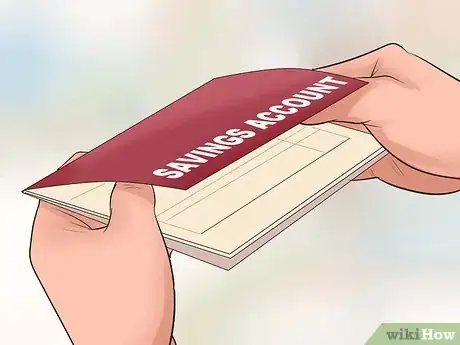This article was co-authored by Trudi Griffin, LPC, MS. Trudi Griffin is a Licensed Professional Counselor in Wisconsin specializing in Addictions and Mental Health. She provides therapy to people who struggle with addictions, mental health, and trauma in community health settings and private practice. She received her MS in Clinical Mental Health Counseling from Marquette University in 2011.
There are 9 references cited in this article, which can be found at the bottom of the page.
wikiHow marks an article as reader-approved once it receives enough positive feedback. In this case, 84% of readers who voted found the article helpful, earning it our reader-approved status.
This article has been viewed 95,418 times.
Some people have a really hard time asking for or accepting help from other peoplem even if they need it. We can help you handle the situation with sensitivity and respect, which may help them be more receptive to what you're offering.
Steps
Talking With the Person
-
1Listen to the person. First and foremost, to help a proud person, you should really listen to them. Hear them out and let them know you understand. You can say, "I hear you, and I want to help." Sometimes when you notice a proud person is struggling with something, listening for the small cues that something's wrong can help you get a better grasp of the situation.
- Give the person your full attention when you listen to them, such as by putting away your phone and turning off the television.
- Nod and make eye contact while the person is speaking to show that you are paying attention. You can also try repeating a short phrase out of what the person says and then to show you are hearing what the person says.
- Ask questions to clarify what the person says. For example, if something is confusing to you, then try saying something like, “I’m not sure I understand. Can you elaborate on that?”
-
2Approach the issue gently. After you have listened to the person and gotten a sense of what the person needs help with, then you might want to try to get the person to talk about it a little more in depth. However, it is important to avoid forcing them to tell you more. If you force it, they may not want to talk any more. They may even become angry with you and stop listening to you. They will then likely be further from the help they need than they were before you talked to them.[1]
- Try saying something like, “It sounds like you have been having a hard time lately. Do you want to talk more about it?”
Advertisement -
3Be careful not to pressure them. Putting pressure on a person who is struggling can make them feel even less like seeking help.[2] As you talk with this person, make sure that you avoid telling them what they “need to” or “should” do. Instead, try to work with the person to help him or her come up with solutions.
- For example, instead of telling someone, “You should apply for WIC to feed your family,” you might say something like, “Have you considered applying for WIC to help offset your family’s cost of food?”
-
4Don't put your own agenda on the person. You may want the person to change in a way that would be beneficial to you, but that might not be the best option for this person. If the person gets the sense that you're trying to change them to what you want, they are likely not to listen.[3]
- For example, if you think a friend should look for a better job because there is no chance for her to get a promotion, then you might consider why the friend might like this job. Perhaps, she enjoys the extra time the job gives her to focus on her hobbies.
-
5Ask how he or she wants to handle the situation. Asking about what the person wants to do will allow him or her to preserve his or her pride. It will also allow the person to consider all of the options. To encourage the person to consider the options, try asking questions instead of telling the person what he or she should do or think. [4]
- For example, instead of saying, "I think that's wrong" or "You can't do that," try saying "What if you did this instead?" or "Have you thought of trying that?"
Offering Financial Help
-
1Talk to them. Seeing where someone is with their problems, and the steps they’re taking to rectify the situation is a good start for trying to help them out financially. You can share strategies you’ve used in similar situations before immediately jumping to give them money.[5]
- For example, you might say something like, “I’ve struggled to pay my bills before and what helped me the most was getting help with things like buying food and paying my gas bill. Did you know that these kinds of resources were available?”
-
2Offer your money openly if you can. If the person really needs money, they might just be too proud to ask. However, the person might accept money if you offer it in a sensitive way. When you offer them money, if you feel it is appropriate, you can let them know you don’t need to be repaid. For some this will be a relief. For others, it will feel like you’re pitying them.[6] [7]
- For example, you might say something like, “You have helped me in the past when I have been struggling, will you please allow me to help you now?”
- If the person says that he or she wants to repay you and you do not want to be repaid, then you can just say something like, “Don’t worry about that right now.”
-
3Offer to loan them the money. If the person is too proud to take money from you straight out, then you may need to offer to loan them the money. This has some drawbacks though, as it can add financial pressure to their already strained wallet. Try your best to alleviate those fears by negotiating terms in a way that favors them but still allows them to pay you back. It can be difficult even so, so don’t push them.[8]
- For example, you might try saying something like, “This is a loan, but you don’t have to worry about paying it back right away. Just focus on you for now.”
-
4Suggest paying it forward as a means of paying you back. This is an especially good tactic for those who are reluctant to take even a loan, as it obligates them to pay it forward in some way, but relieves them of the obligation to think about paying it back immediately. It will be something they can do once they’re back on their feet.[9]
- For example, you can tell the person, “You don’t have to repay me, just promise that you will help someone else someday if you can.”
-
5Give them money anonymously. Giving the money anonymously may save the person from feelings of embarrassment or shame, which are likely if the person is too proud to ask for help. It may also prevent any awkwardness between the two of you because of a loan or gift of money.[10] [11]
- You can leave a money order for the person in his or her mailbox. If you’re a part of a religious organization, then you can talk to your religious leaders to see if you can anonymously forward the money to them.
-
6Offer to help out in other ways. You can also help the person by offering to help with tasks that they would usually need to pay for, such as by offering free childcare, lawn care, or personal services. This is an especially good option if they’ve helped you out in any of these ways before. The person will feel less like he or she is receiving charity, but they’ll have a bit of relief.[12]
- Try saying something like, “Hey Karen! I wanted to pay you back for watching my kids last week. Can I watch your kids for you sometime when you need a babysitter?”
-
7Hire the person. If the person in financial need is unemployed or underemployed, then you could also offer them a job. Make sure that you pay them the same amount that you would pay anyone else. Do not pay more or less.[13]
- For example, if the person is a contractor, then you might hire the person to do some repairs around your house. If the person is a teacher, then you might hire the person to tutor your kids.
Helping a Proud Person with Other Issues
-
1Talk to them about your concerns. If you notice a friend is withdrawing or just acting a lot differently than normal, ask them how they’re doing. Let them know they can talk to you. This will give them some space to express their feelings. They might feel alone on top of feeling too proud to ask anyone for help. They may have the sense that they should be able to figure it out on their own. So, let them know, they’re not alone.[14]
- It’s important that you ask in a way that doesn’t sound like the typical pleasantries. Try saying “What’s going on with you right now?” or “I noticed you’ve been struggling lately. How can I help?”
-
2Share your experiences if you’ve experienced something similar. Sharing your experiences is a good way to let them know they aren’t alone. If they seem to be anxious or depressed, talk about a time when you felt that way. If you haven’t felt that way, try to find an experience that is at least somewhat similar. Don’t make it up. If needed, refer them to a friend who might be able to help them more than you can.
- Try saying something like, “I don’t know exactly what you’re going through, but I have experienced something similar.”
-
3Show your support. Letting them know you’re on their side can be a big relief for some people. By being a support in other ways (cleaning, childcare, etc.), you can help take a load off and possibly encourage them to get the help they need. You can say something like “I’m here for you” or “I’ll check in tomorrow to see if I can help you with something.”[15]
- For example, you might offer to cook dinner for the person one night by saying something like, “I am planning to try out a new recipe on Saturday. Would you like to come over to my house and join me for dinner?”
-
4Consider finding someone they respect to broach the topic with them. Most people have at least one person who they look up to, such as a mentor, an educator, a boss, or a charismatic family member. Your friend might be more open to listening to someone who he or she looks up to. Find this person and get him/her to go up to the proud person and encourage him or her to accept help from others. This person might be able to convince your proud friend to seek help from you or someone else who can help.[16]
Letting Them Choose Their Own Path
-
1Know your limitations and accept them. Sometimes we can’t help someone, or at least not in the way they need. If they push back aggressively, or are taking too much from you in time, effort, etc., it may be time to step back. Even if they do accept your help, there’s only so much you as a friend can do. Sometimes therapy and medication is needed, and a friend can’t offer that. [17]
- Keep in mind that you can say no if you feel that someone is taking advantage of your kindness.
- If you are worried about a friend or family member’s well-being, then you might talk to someone who can help, such as a teacher or a counselor.
-
2Maintain healthy boundaries. This means neither overstepping in helping them nor allowing them to overstep in asking for help, assuming they do. This is especially important with a proud person, as helping them too much may make them feel like you pity them or that you feel sorry for them. Instead, when possible, ask how you can help, and don’t attempt to do more than is requested.
- For example, if the person has reassured you that he or she is okay, then you should not keep pressing the person to accept your help. You might simply say something like, “I am always here for you if you need my help. Just let me know.”
-
3Respect their decisions. As much as you want to help them, it is important to give them the space to make their own decisions. Ultimately, it is their life, and they have the choice to get help when they need it or to reject that help. It might hurt, but being a friend sometimes means stepping back and letting your friend choose their own path.[18]
Warnings
- If their inability to cope is impacting people in their care, be prepared to be more forthright in your determination to help. It isn't appropriate for dependents to be harmed as a result of someone else's pride.⧼thumbs_response⧽
- If you anger them, you might lose the friendship/relationship. If you're not confident that they will take it the right way, it's best that you leave them to deal with things on their own.⧼thumbs_response⧽
References
- ↑ http://au.reachout.com/what-to-do-when-someone-doesnt-want-help
- ↑ http://au.reachout.com/what-to-do-when-someone-doesnt-want-help
- ↑ http://www.thechangeblog.com/help-people-change/
- ↑ http://www.thechangeblog.com/help-people-change/
- ↑ http://ie.reachout.com/getting-help/face-to-face-help/things-you-need-to-know/benefits-of-talking-to-someone/
- ↑ http://www.oncolink.org/blogs/index.php/2014/09/help-friend-going-cancer-treatment/
- ↑ http://www.nytimes.com/2009/03/28/your-money/28money.html
- ↑ http://www.nytimes.com/2009/03/28/your-money/28money.html
- ↑ http://www.nytimes.com/2009/03/28/your-money/28money.html
- ↑ http://christianpf.com/how-to-anonymously-give-someone-money/
- ↑ http://www.nytimes.com/2009/03/28/your-money/28money.html
- ↑ http://www.oncolink.org/blogs/index.php/2014/09/help-friend-going-cancer-treatment/
- ↑ http://www.forbes.com/sites/deborahljacobs/2011/08/22/6-ways-to-give-family-and-friends-financial-aid/#6762407728ee
- ↑ http://www.northeastern.edu/uhcs/health-and-wellness/helping-friend-may-eating-disorder/
- ↑ http://www.northeastern.edu/uhcs/health-and-wellness/helping-friend-may-eating-disorder/
- ↑ http://www.nytimes.com/2009/03/28/your-money/28money.html
- ↑ http://www.northeastern.edu/uhcs/health-and-wellness/helping-friend-may-eating-disorder/
- ↑ https://www.psychologytoday.com/blog/evolution-the-self/201210/rebuffed-4-reasons-someone-might-reject-your-help

















































































